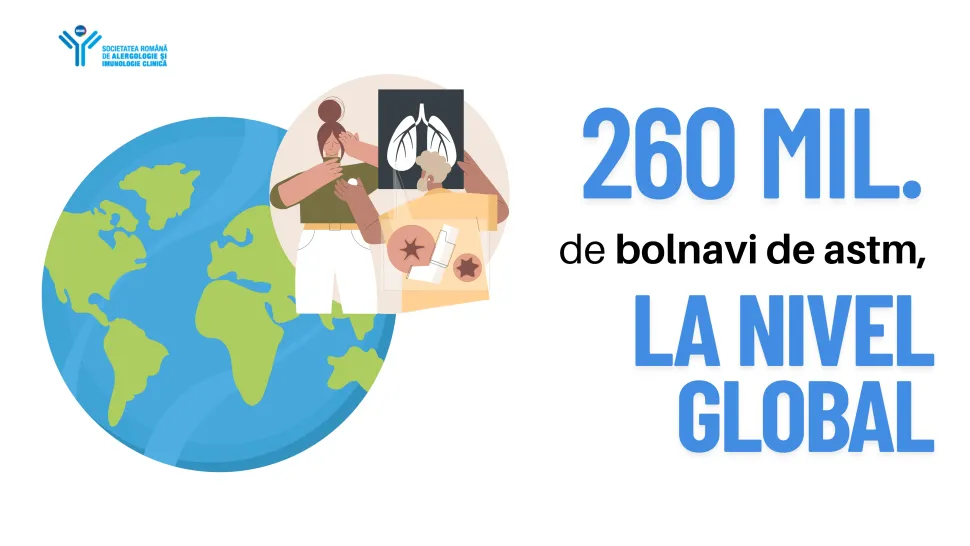
Asthma, the disease that kills over 1,000 people every day! In Romania, 1 in 20 children suffers from asthma. Doctors are calling for accessible inhaler treatment for everyone.
Air pollution and climate change are worsening asthma, turning it into a major threat to public health.
PR Release – World Asthma Day, 2025 (Bucharest, May 6)
Every year, on the first Tuesday of May, the world marks the World Asthma Day, held under the guidance of the Global Initiative for Asthma (GINA). The main theme for 2025 – “Make inhaler treatment accessible for EVERYONE!” – draws renewed attention to a critical issue: asthma is affecting more and more people, while access to essential treatments remains a challenge, including in Romania!
“Asthma is one of the most common chronic inflammatory diseases and a major public health issue. In Romania, the occurrence is estimated at 4–6% in the general population, and 1 in 20 school-aged children suffers from asthma,” warns Prof. Dr. Carmen Panaitescu, President of the Romanian Society of Allergology and Clinical Immunology.
According to data published by the National Institute of Public Health, the incidence of asthma in Romania is on the rise, with 1.5 new cases per 1,000 people reported each year. According to the World Health Organization, over 260 million people suffer from asthma worldwide, and approximately 450,000 deaths are recorded annually, most of them preventable. This means more than 1,000 deaths per day globally! (source: Global Burden of Disease)
Recent data show that 96% of asthma-related deaths occur in low- and middle-income countries, where the lack of availability or high costs of inhaler therapy—especially those containing corticosteroids—hinder effective disease control. Alarmingly, even in high-income countries, the cost of essential treatments remains a major barrier for many patients, leading to frequent exacerbations and hospitalizations.
An increasingly toxic environment: pollution and climate change fuel the asthma crisis
Exposure to air pollutants (PM2.5, nitrogen oxides, tropospheric ozone) and the extended pollen season caused by climate change worsen asthma symptoms and the frequency of asthma attacks. Major cities in Romania are among the most affected.
“Asthma patients become extremely vulnerable in an unstable and polluted environment. Reducing exposure and ensuring easy access to control therapies are essential measures to prevent severe exacerbations and respiratory complications,” explains Prof. Dr. Carmen Panaitescu.
The consequence is the onset and worsening of allergic inflammation in various organs—such as the nose and bronchi—clinically manifested by worsening rhinitis and more frequent and severe asthma attacks.
Thus, asthma patients become increasingly vulnerable in an unstable and harmful environment, which requires adapting prevention and treatment strategies, as well as an interdisciplinary approach that integrates medicine, public health, and environmental policies. In the absence of a curative therapy, reducing exposure to pollutants and adapting to new climate conditions become essential components of long-term disease control.
The silent burden of asthma: high costs and affected lives
Asthma affects not only patients’ health but also the economy. In Europe, approximately 30 million people suffer from asthma, and the total annual societal costs resulted from both direct and indirect healthcare-related expenses, mainly linked to outpatient treatment—are estimated at around €34 billion, according to the European Lung White Book.
Allergic asthma is one of the most common asthma phenotypes, estimated to affect over 80% of the pediatric population and over 50% of adults (according to data from the prestigious European Academy of Allergy and Clinical Immunology, EAACI). It is the most frequent form of asthma with onset in childhood, often associated with other allergic conditions such as rhinitis/rhinoconjunctivitis and allergic dermatitis.
The most common allergens causing allergic asthma in Central Europe, including Romania, are house dust mites, ragweed and grass pollen, and Alternaria mold spores.
The main symptoms of asthma include dry or productive cough, difficulty breathing, chest tightness, and wheezing. These symptoms can be accompanied by reduced exercise tolerance, nocturnal attacks that awaken the patient from sleep, and an overall reduction in quality of life.
Proper treatment can save lives – but not all patients have access
Inhaled corticosteroids are the key to controlling asthma and preventing severe attacks. However, the cost of treatment and the lack of subsidy for essential therapies, such as allergen immunotherapy, create barriers for patients. Additionally, for allergic asthma, allergen immunotherapy (AIT) is available—the only therapeutic intervention capable of modifying the natural course of the disease by inducing long-lasting immune tolerance to the triggering allergen.
AIT is an effective targeted treatment for allergen-specific triggers, addressing the root cause of asthma symptoms in sensitized patients. Evidence also suggests that AIT can prevent the development of new allergic sensitizations, reducing the severity and progression of asthma. In Romania, not all patients have access to these advanced therapies, and doctors are calling attention to the need to expand access to innovative treatments.
“The arrival of biologic therapy for severe asthma has represented a significant advance in the management of this form of the disease, which was once considered disabling. This biologic therapy has been successfully used for over 20 years, and we, the doctors in Romania, are pleased to be able to offer our patients access to these innovative treatments, which have demonstrated a significant reduction in the frequency of exacerbations, the need for systemic corticosteroids, and, at the same time, an improvement in quality of life. Before the introduction of biologic therapies, at the beginning of the 21st century, patients with severe asthma had limited and often hopeless therapeutic options,” explains Prof. Dr. Carmen Panaitescu.
In Romania, medical authorities have ensured the availability and subsidy of the main types of asthma therapies, ranging from mild to severe forms. This includes both inhaled corticosteroids—either alone or in combination with bronchodilators and biologic therapy, which is useful for severe asthma. The availability of personalized therapies, including biologic and allergen immunotherapy guided by specific biomarkers, marks the transition from symptomatic treatment to precision therapy, tailored to the immunological profile of each patient.
Currently, thanks to advances in targeted treatments, the possibility of achieving disease remission is becoming increasingly clear, even among patients with severe asthma, representing a paradigm shift in the management of severe asthma.
**
About the Romanian Society of Allergology and Clinical Immunology
The Romanian Society of Allergology and Clinical Immunology (SRAIC) is the professional organization that promotes scientific and clinical standards in allergology, advocating for better access to diagnosis and treatment for all Romanian patients.
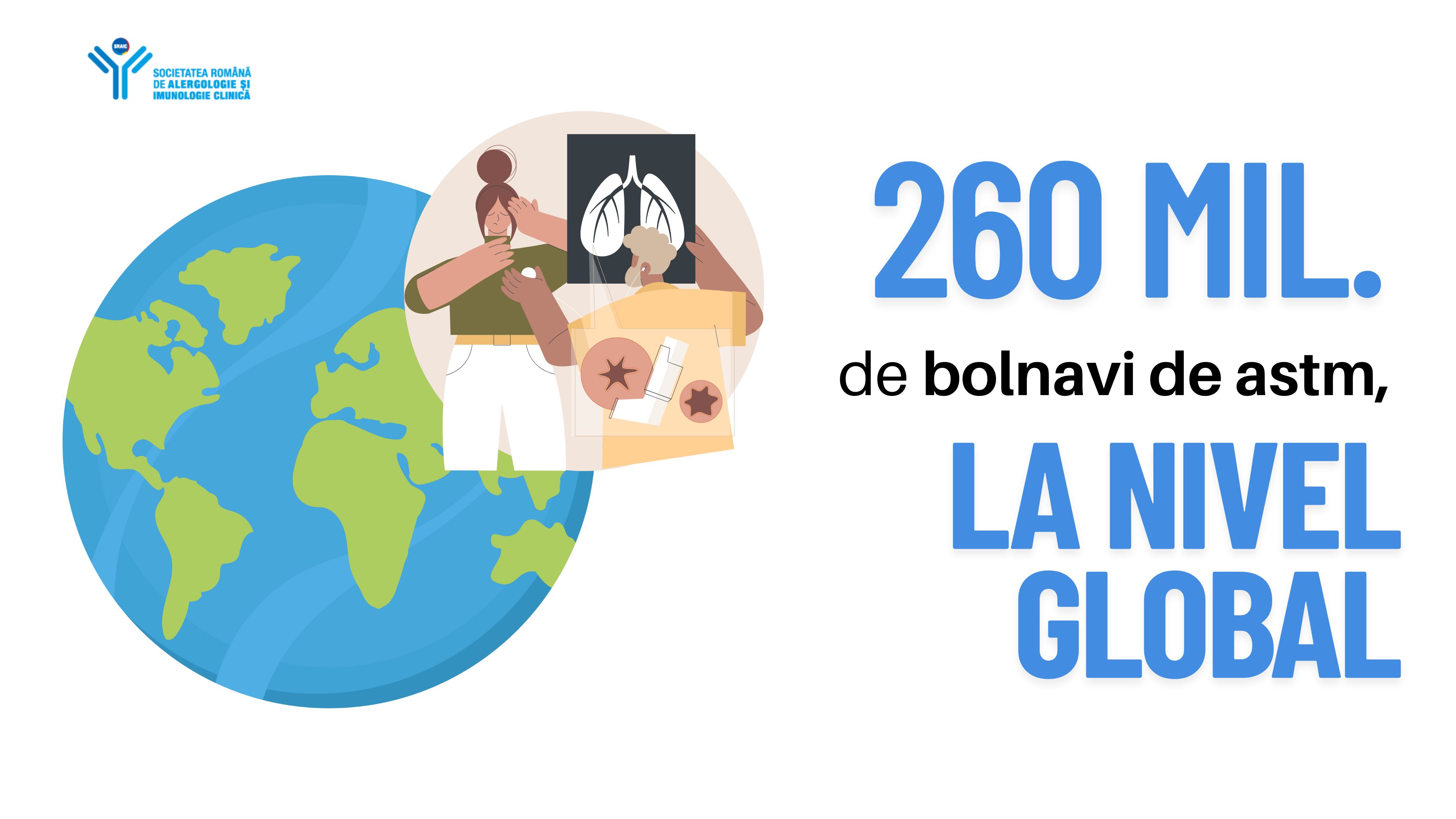
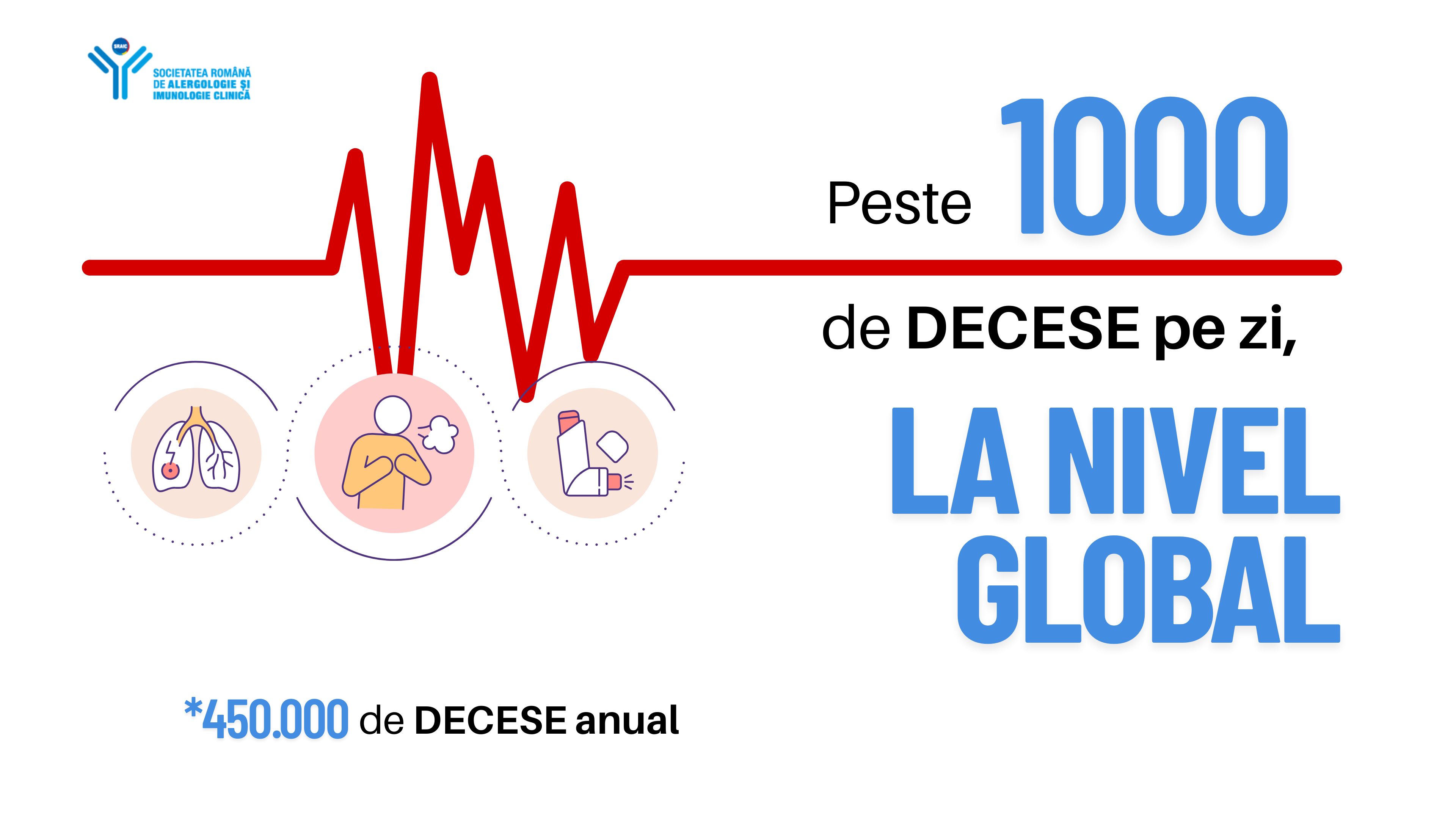
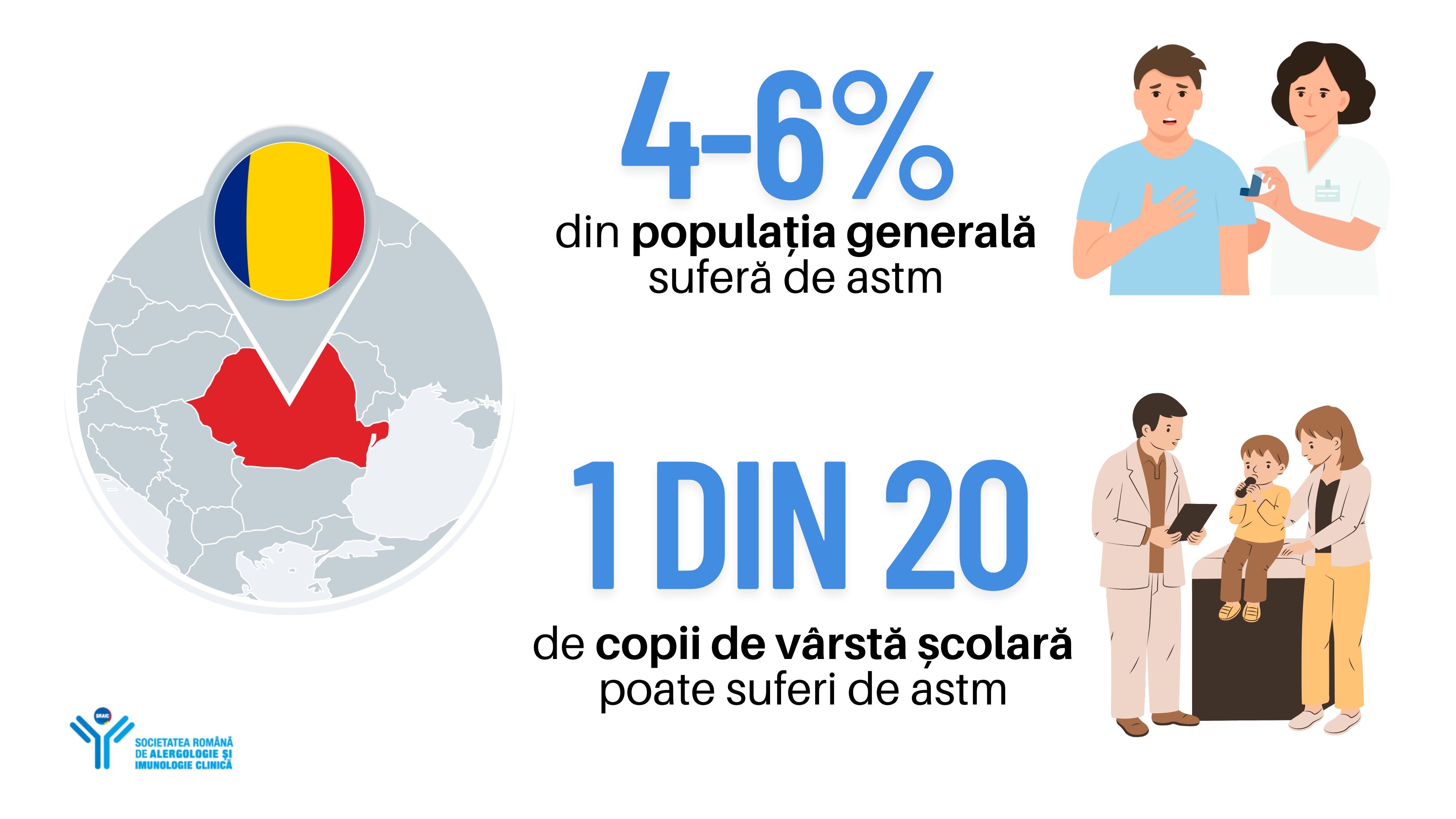
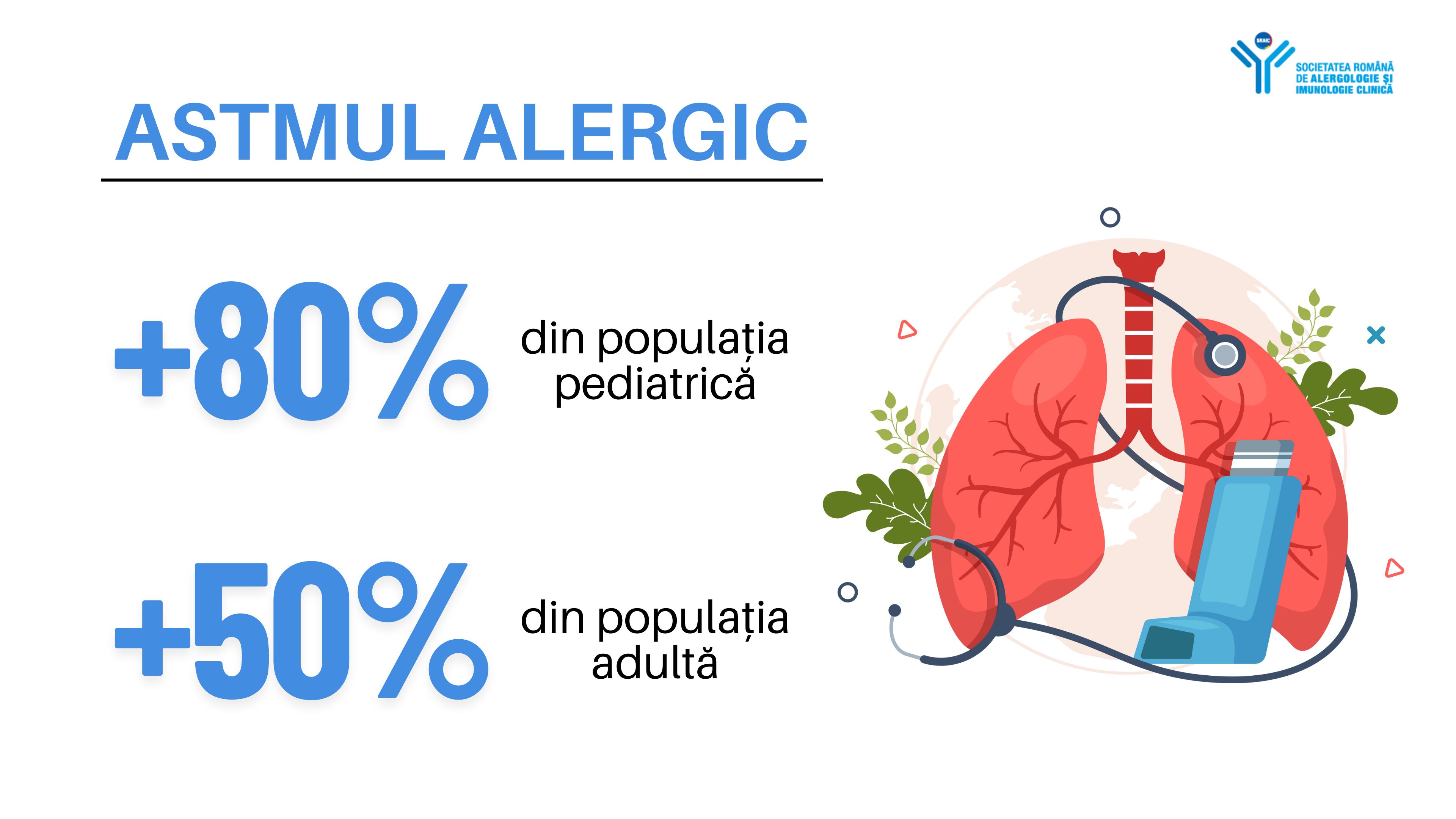
Stay up to date with the latest news: key events, industry insights, trends in medical communication, and strategic insights. Subscribe and stay connected to the pulse of the medical field.
